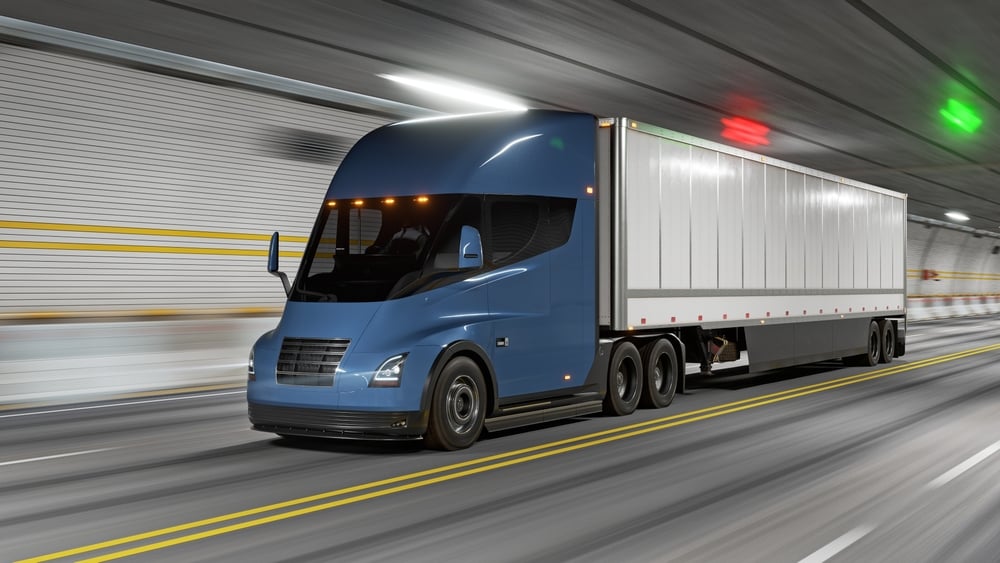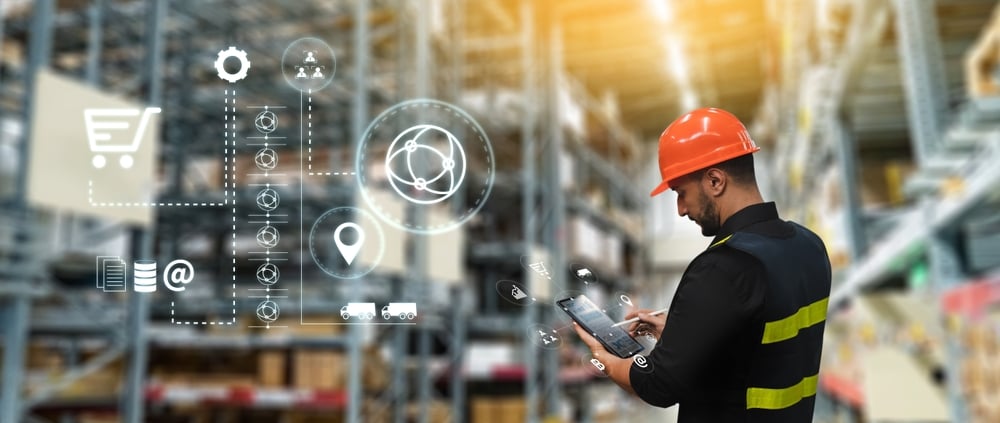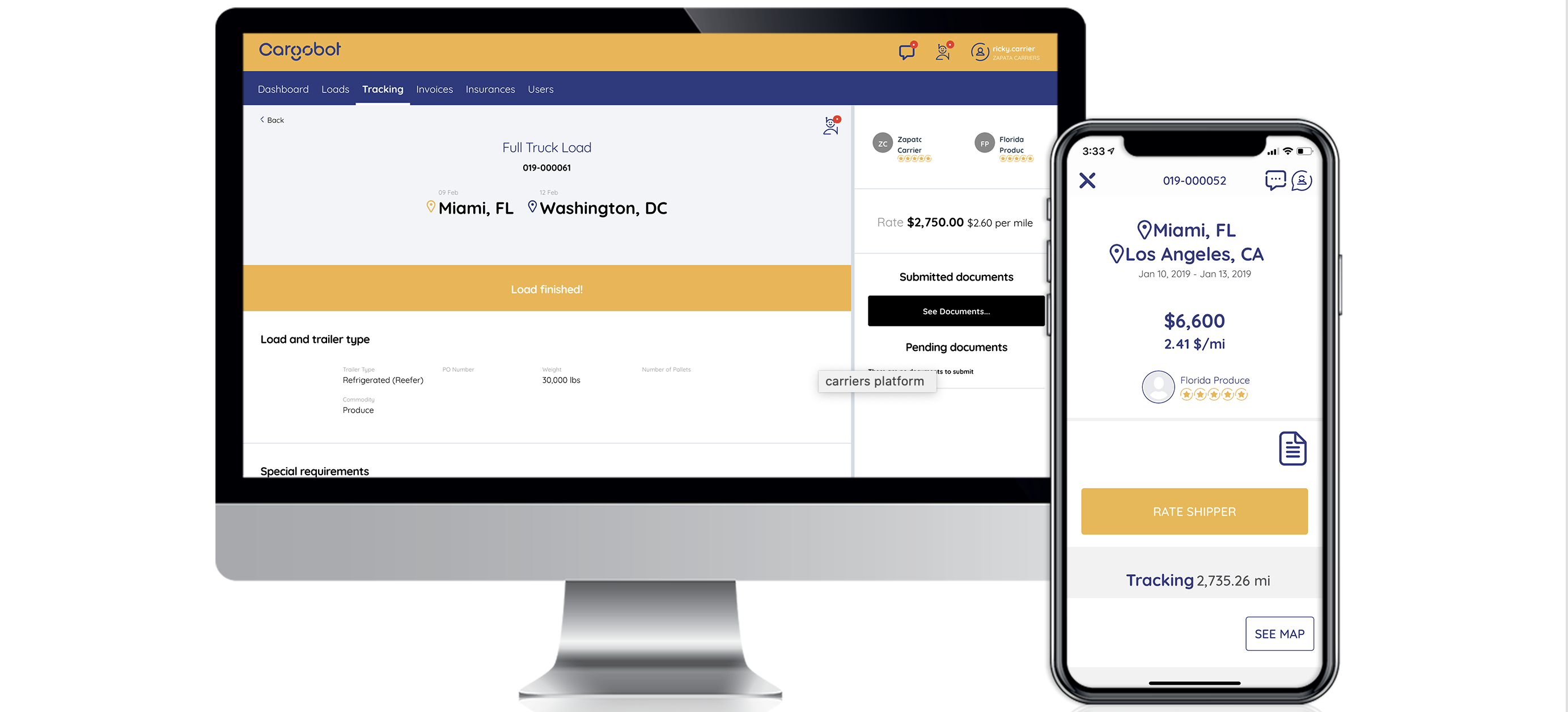5 New Technologies Shaping the Future of LTL Transport
Less-than-truckload (LTL) transport is undergoing a significant transformation thanks to the rise of ground-breaking technologies. As the industry evolves, businesses and carriers must adapt to these changes to maintain efficiency, cost-effectiveness, and sustainability.
From the Internet of Things (IoT) devices to autonomous vehicles, these innovations are enhancing the LTL transport experience and reshaping the entire supply chain.
Let's dive into these fascinating advancements and discover how they are changing the game for LTL transport.
Advancements in Tracking Technologies for LTL Transport
![]()
New technologies such as GPS tracking and telematics are improving LTL carrier efficiency and visibility. As customers demand greater visibility and control over their shipments, LTL carriers have adopted innovative solutions to meet these needs.
1) Real-Time GPS Tracking
Real-time GPS tracking has become a standard feature for over-the-road LTL carriers, allowing shippers to monitor the exact location of their shipments at any given time.
This technology enhances efficiency, reduces the risk of lost or misplaced cargo, and provides both shippers and receivers peace of mind.
2) Internet of Things (IoT) Devices
IoT devices transform the LTL industry by providing detailed information about shipment conditions. These intelligent devices can monitor temperature, humidity, and other factors, ensuring that sensitive cargo is transported optimally.
IoT devices also enable proactive issue resolution, such as detecting potential damage before it becomes a costly problem.
The Role of Artificial Intelligence in LTL Shipping

Artificial Intelligence (AI) has been making waves in various industries, and the Less Than Truckload (LTL) shipping sector is no exception. The integration of AI within LTL transport operations is revolutionizing how shipments are planned, tracked, and delivered. In this section, we'll explore some exciting applications of AI in the LTL shipping industry.
1) Optimizing Load Planning and Routing
Efficient load planning and route optimization are critical aspects of LTL shipping. AI-powered algorithms analyze vast amounts of data, such as shipment sizes, destinations, and traffic patterns, to determine the most efficient combination of loads and routes. This not only saves fuel and time but also reduces the overall cost of transportation.
2) Real-time Shipment Tracking and Predictive Analytics
AI-enabled tracking systems provide real-time shipment updates, giving both shippers and carriers increased visibility and control over their freight.
Moreover, AI-powered predictive analytics can forecast potential delays or disruptions, allowing stakeholders to proactively address issues and ensure timely deliveries.
3) Automating Customer Service and Support
LTL shipping market size is expected to reach $96.2 billion by 2025. This trajectory is precisely why customer service is essential to the LTL shipping experience, and AI significantly enhances it.
Chatbots and virtual assistants powered by AI can handle a wide range of customer inquiries, from tracking shipments to answering questions about rates and services. This results in faster response times and improved customer satisfaction.
Incorporating AI in LTL shipping is driving significant improvements in efficiency, customer service, and overall operations. As these technologies continue to advance, we can expect even more innovative solutions to emerge, shaping the future of LTL transport for the better.
How Autonomous Vehicles are Revolutionizing LTL Transport

The rise of autonomous vehicles is transforming the landscape of Less-Than-Truckload (LTL) transport, making it more efficient and cost-effective. These self-driving trucks are equipped with advanced technologies that enable them to navigate traffic, avoid obstacles, and make real-time decisions, allowing them to deliver shipments more quickly and safely.
One key benefit of autonomous vehicles in LTL transport is their ability to reduce human error. Truck drivers often face long hours and tight deadlines, leading to fatigue and impaired decision-making. On the other hand, autonomous trucks are not subject to these limitations, resulting in fewer accidents and improved safety on the roads.
1) Increased Efficiency and Cost Savings
Autonomous LTL transport also offers significant efficiency improvements. These vehicles can operate around the clock, without breaks or shift changes, significantly reducing transit times. Furthermore, autonomous trucks can communicate with each other to form platoons or convoys.
This enables them to drive closer together, reducing air resistance and fuel consumption, ultimately lowering operational costs for logistics companies.
2) Environmental Impact and Sustainability
Another advantage of autonomous LTL transport is its potential to reduce the industry's environmental impact. Self-driving trucks can optimize their routes to minimize fuel consumption and emissions, contributing to a greener and more sustainable future.
Additionally, adopting electric autonomous vehicles in the LTL sector could further reduce the carbon footprint of the transport industry.
The Impact of Big Data on LTL Shipping Operations

Big data has the potential to revolutionize the LTL shipping industry. By leveraging vast amounts of information, companies can optimize their operations, reduce costs, and improve customer service.
Let's explore some of the ways big data is making an impact on LTL shipping operations.
1) Optimized Routing and Load Planning
One of the most significant benefits of big data in LTL shipping is optimizing routing and load planning. By analyzing historical data and real-time information, companies can determine the most efficient routes and load plans, reducing fuel consumption, transit times, and overall costs.
This optimization leads to more efficient shipping operations and a reduced environmental impact.
2) Predictive Analytics for Improved Decision Making
Predictive analytics is another powerful tool made possible by big data. By analyzing trends and patterns in shipping data, companies can make informed decisions about various aspects of their operations, such as equipment maintenance, staffing levels, and warehouse management.
This proactive approach helps to prevent potential problems before they occur, leading to smoother operations and reduced costs.
3) Enhanced Customer Service
Big data also plays a crucial role in enhancing customer service in the LTL shipping industry. By aggregating and analyzing customer feedback and shipment data, companies can identify areas for improvement, tailor their services to meet customer needs better, and provide more accurate delivery estimates.
The result is a more personalized and efficient service experience for customers.
The Future of Last-Mile Delivery in LTL Transport
As e-commerce grows, the demand for efficient and reliable last-mile delivery in less-than-truckload (LTL) transport becomes increasingly important. Innovative technologies are being developed to revolutionize this crucial component of the supply chain, making it faster, more cost-effective, and more sustainable.
Let's look at some groundbreaking solutions shaping the future of last-mile delivery in LTL transport.
1) Autonomous Vehicles and Drones
Self-driving vehicles and drones are transforming last-mile delivery by automating the process and reducing the need for human labor. These technologies can significantly increase efficiency, reduce costs, and improve overall customer experience in LTL transport.
However, there are still challenges to overcome, such as regulations, safety concerns, and scaling the technology for broader adoption. As these issues are addressed, self-driving vehicles and drones will continue revolutionizing the LTL transport industry.
2) Blockchain Technology
Blockchain technology is being explored as a way to improve supply chain transparency and security in LTL transport. This decentralized digital ledger allows all parties involved in a shipment to access and update information securely and in real time.
By reducing the need for intermediaries, blockchain can streamline processes, minimize errors, and reduce overall costs for carriers, shippers, and customers alike.
3) Freight Robotics
Robotics and automation are increasing in LTL transport, particularly warehouses and distribution centers.
From automated guided vehicles (AGVs) that move shipments within facilities to robotic arms that load and unload cargo, these technologies improve efficiency, accuracy, and safety in handling and storing LTL shipments. As these technologies advance and become more affordable, they will continue to shape the future of LTL transport.
Embracing a Data-Driven Future

As autonomous LTL transport continues to evolve, it is evident that embracing a data-driven approach will be crucial. By collecting and analyzing data on vehicle performance, routes, and traffic patterns, logistics companies can make informed decisions to optimize their operations. This, in turn, leads to improved efficiency, cost savings, and a more sustainable transport industry overall.
How Cargobot Impacting the Future of LTL Transport
As a game-changing digital solution, Cargobot is making waves in the LTL transport industry. Cargobot streamlines the shipping process by leveraging cutting-edge technology, creating a more efficient and cost-effective experience for shippers and carriers.
Let's explore how Cargobot is impacting the future of LTL transport.
1) Automated Freight Matching
One of the most significant features of Cargobot is its ability to match shippers with available and experienced carriers automatically, streamlining the LTL transport process and ensuring efficient load distribution.
By utilizing advanced algorithms and real-time data, Cargobot simplifies the decision-making process for both shippers and carriers, leading to a more sustainable and cost-effective LTL transport industry.
2) Improved Efficiency and Visibility
Cargobot provides real-time visibility into the status of shipments, allowing shippers and carriers to track their freight throughout the entire transportation process. This transparency eliminates guesswork and reduces the risk of delays or lost cargo.
Furthermore, Cargobot optimizes route planning and load distribution, maximizing truck capacity and reducing empty miles. Cargobot contributes to cost savings and a more environmentally friendly LTL transport system by eliminating inefficiencies and improving utilization.
3) Streamlined Documentation and Communication
The LTL transport industry traditionally relies on manual paperwork and lengthy communication processes. Cargobot revolutionizes this aspect by digitizing documentation and facilitating seamless communication between shippers, carriers, and drivers.
All necessary documents, such as bills of lading and proof of delivery, can be easily accessed and shared through the platform, reducing administrative burdens and minimizing errors. Cargobot's built-in messaging system also enables direct and efficient communication, fostering collaboration and resolving real-time issues.
4) Enhanced Data Analytics and Insights
Cargobot harnesses the power of data analytics to provide valuable insights to shippers and carriers. By analyzing historical and real-time data, the platform identifies trends, patterns, and opportunities for optimization.
For shippers, this means gaining valuable insights into shipping costs, carrier performance, and market dynamics, enabling them to make informed decisions and negotiate better rates.
It's time to Go Beyond With Cargobot

Cargobot is transforming the over-the-road freight and LTL transport industry by introducing automation, visibility, and efficiency to the shipping process.
By embracing this innovative digital solution, carriers and shippers can navigate the evolving landscape of LTL transport with greater ease, cost-effectiveness, and sustainability. As technology advances, solutions like Cargobot pave the way for a more streamlined and data-driven future in LTL transport.
Don't wait to start your personalized quote today!

